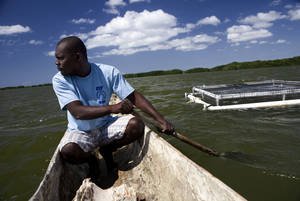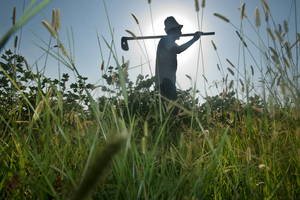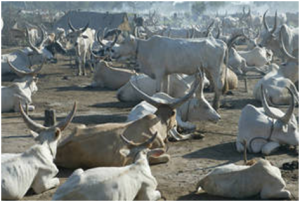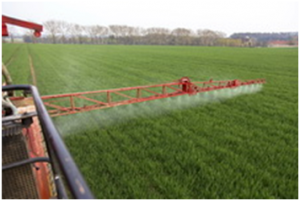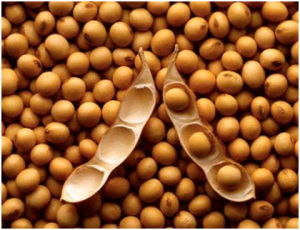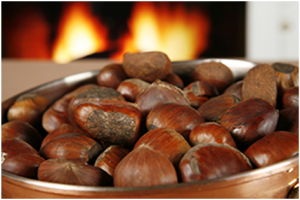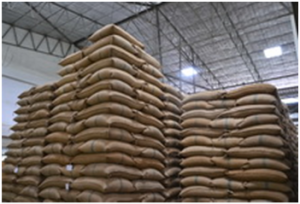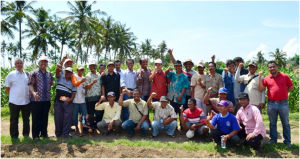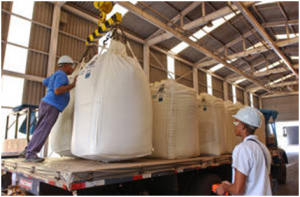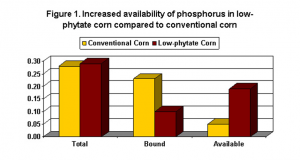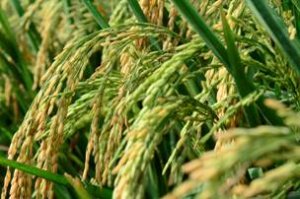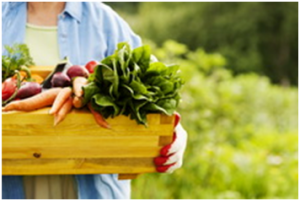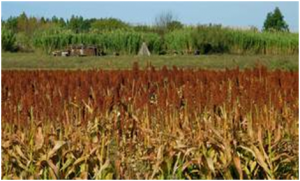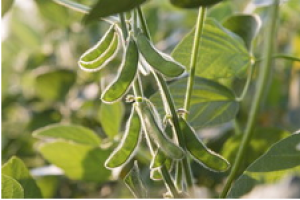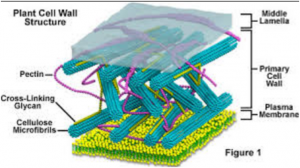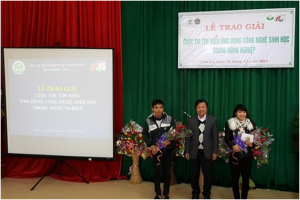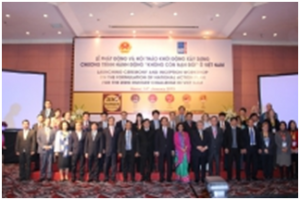|
UN agencies provide seeds, tools and food to break hunger cycle in CAR
Friday, 2016/05/27 | 08:24:37
|
FAO and WFP providing critical support to farming families in Central African Republic during lean season
Figure: Under the 'seeds protection’ initiative, FAO provides crop and vegetable seeds, while WFP provides groundnuts, maize, rice, sorghum, and beans to the same families.
Joint FAO-WFP news release
FAO 25 May 2016, BANGUI/ROME - The United Nations Food and Agriculture Organization (FAO) and the World Food Programme (WFP) have begun providing seeds, hand tools and food to nearly 50,000 hungry farming families for this planting season in the most food-insecure areas of the Central African Republic (CAR). It coincides with the height of the lean season when household food stocks are typically lowest.
Under the ‘seeds protection' initiative, FAO provides crop and vegetable seeds, while WFP provides groundnuts, maize, rice, sorghum, and beans to the same families.
"Helping families rebuild food production is an important part of the recovery in this country, as it creates a source of food and income and can help bring stability to communities," said FAO country representative Jean-Alexandre Scaglia. "That's why it's critical we make sure families don't cope with the current scarcity by eating their seeds meant for planting."
"We know that during this period, food is limited and families are already struggling," said Bienvenu Djossa, WFP Central African Republic Country Director. "The food provided by WFP ensures that the seeds get planted and families don't go hungry at the same time," according to Djossa, who stressed that, "Our support now can help people escape the vicious cycle of hunger."
Three years of conflict have disrupted agriculture and severely constrained people's access to food as they have been struggling with the effects of multiple poor harvests, disrupted markets and soaring prices for many staple foods.
"As peace is returning to CAR, this initiative is a beam of hope for thousands of families," added Djossa.
Another 50,000 families will be supported during the second planting season in August/September, meaning 100,000 families in total (500,000 people) will be supported under the initiative this year.
The distribution of seeds and food is made possible by funds from the governments of (in alphabetical order) Belgium, Canada, France, Italy, Japan, the United Kingdom and the United States, as well as the African Development Bank, the European Union and ECHO, the Fonds Bêkou, the United Nations Central Emergency Response Fund, the Common Humanitarian Fund for the Central African Republic, UN Women, and the World Bank.
With 75 percent of the population depending on agriculture, FAO, WFP and their partners have been working together since the beginning of the unrest to mitigate negative impacts on agricultural production and food security; the seeds protection initiative was first implemented in 2014.
The Government of the Central African Republic is leading a strategic effort to revive the agricultural sector. FAO and WFP are supporting the Government through longer-term programmes that aim to save and strengthen livelihoods and build resilience.
However, the two UN agencies warn that with only half of both agencies' funding needs secured, people in CAR face receiving only half of the support they need.
FAO is appealing for US$86 million to support 1.55 million people with inputs to produce crops and keep their livestock healthy, and strengthen the government's efforts to boost food security. However, there is a serious funding gap, to date only 8 percent of these requirements have been met.
WFP requires US$83 million to respond to the urgent needs of 1.4 million people until the end of September in CAR. and in neighbouring countries hosting Central African Republic refugees. |
|
|
|
[ Other News ]___________________________________________________
|


 Curently online :
Curently online :
 Total visitors :
Total visitors :
(40).png)
